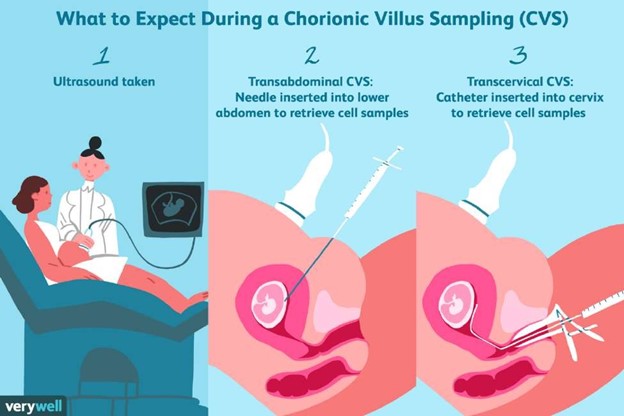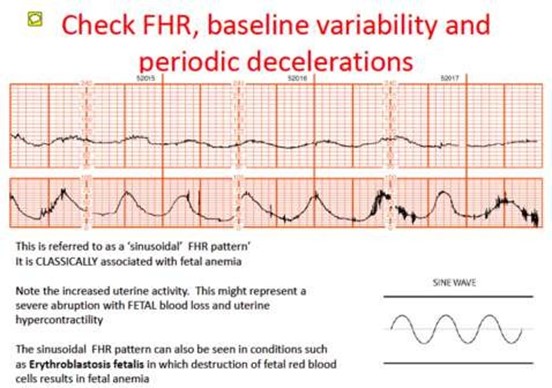A nurse is planning care for a client following a chorionic villus sampling.
The nurse should recognize that the client is at risk for developing which of the following complications?
Anemia
Infection
Late decelerations
Placental insufficiency.
The Correct Answer is B
Chorionic villus sampling (CVS) is a prenatal test that involves taking a sample of tissue from the placenta to test for chromosomal abnormalities and certain other genetic problems.
As with all types of surgical procedures, infections can happen during or after CVS2.

Choice A is incorrect because anemia is not a known complication of CVS.
Choice C is incorrect because late decelerations are a type of fetal heart rate patern that can occur during labor and are not related to CVS.
Choice D is incorrect because placental insufficiency is a condition where the placenta is unable to provide enough oxygen and nutrients to the fetus and is not a known complication of CVS.
Nursing Test Bank
Naxlex Comprehensive Predictor Exams
Related Questions
Correct Answer is C
Explanation
A nurse assessing the results of a nonstress test for an antepartal client at 35 weeks of gestation should indicate the need for further diagnostic testing if there are no late decelerations noted with three uterine contractions of 60 seconds in duration within a 10-min testing period.

Choice A is incorrect because an increase in fetal heart rate to 150/min above the baseline of 140/min lasting 10 seconds in response to fetal movement within a 40-min testing period is a normal result.
Choice B is incorrect because irregular contractions of 10 to 20 seconds in duration that are not felt by the client do not indicate the need for further diagnostic testing.
Choice D is incorrect because three fetal movements perceived by the client in a 20-min testing period do not indicate the need for further diagnostic testing.
Correct Answer is D
Explanation
A nurse conducting a class for a group of clients about birth control should include information about having an annual examination to assess their diaphragm.
A diaphragm should be replaced at least every 2 years and it’s important to
bring it to an annual checkup so the healthcare provider can check the fit.
Choice A is incorrect because spermicide should be used immediately before sexual intercourse, not 3 hours prior.
Choice B is incorrect because fertility can return immediately after IUD removal.
Choice C is incorrect because emergency contraception is intended for backup contraception only and not as a primary method of birth control
Whether you are a student looking to ace your exams or a practicing nurse seeking to enhance your expertise , our nursing education contents will empower you with the confidence and competence to make a difference in the lives of patients and become a respected leader in the healthcare field.
Visit Naxlex, invest in your future and unlock endless possibilities with our unparalleled nursing education contents today
Report Wrong Answer on the Current Question
Do you disagree with the answer? If yes, what is your expected answer? Explain.
Kindly be descriptive with the issue you are facing.
